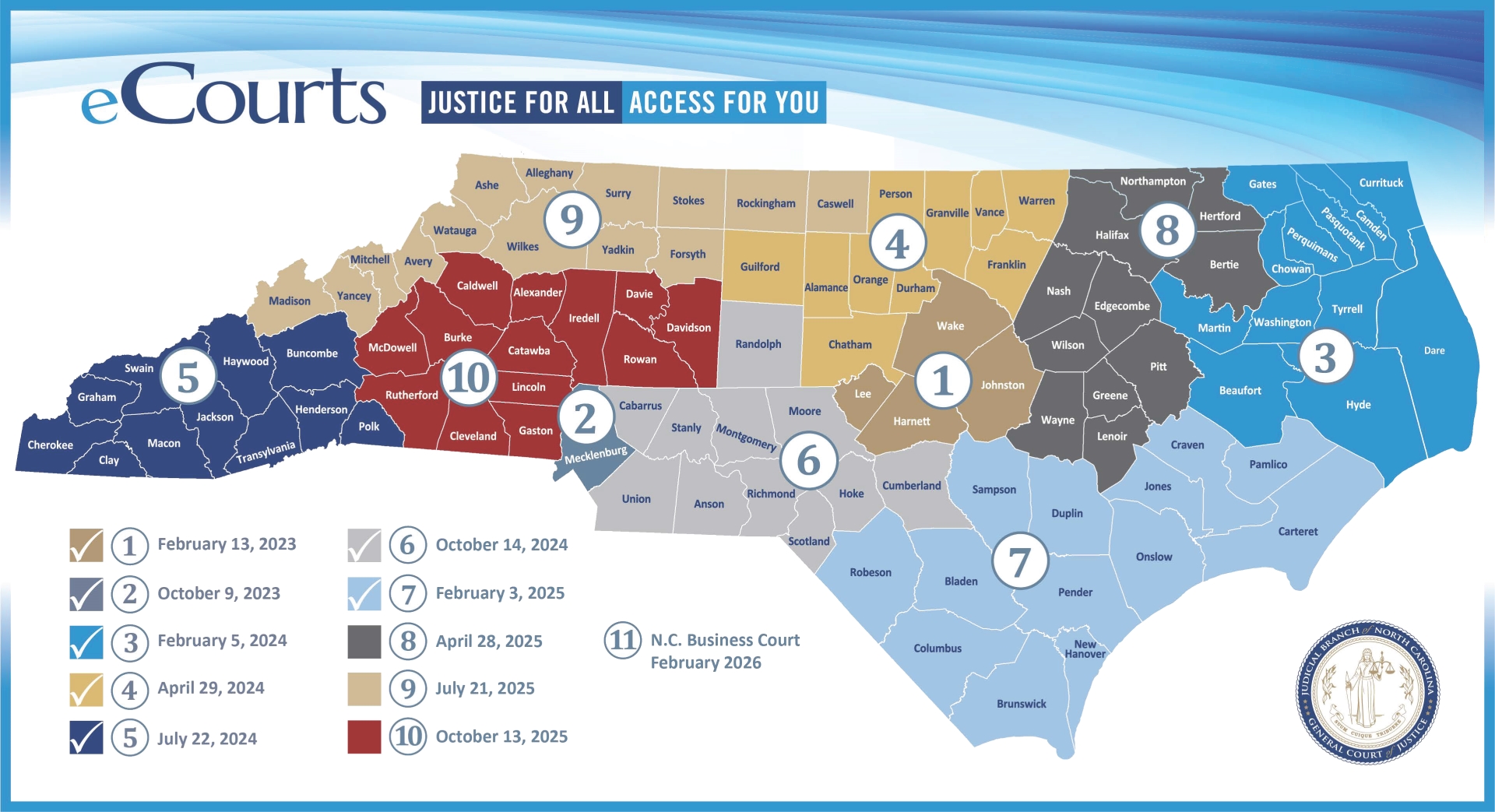Dates Announced for 27 Counties and N.C. Business Court to Expand Access to Justice
Article contents

Dates were announced this week for the final two groups of counties and the North Carolina Business Court to expand access to justice for the public by converting their jurisdictions to eCourts.
eCourts currently serves 62 counties, including the state’s entire coastline, westernmost regions, and three largest metropolitan areas. Track 7 of the statewide rollout was recently completed in 13 counties of southeast North Carolina this month, and Track 8, also in eastern North Carolina, is preparing to transition on April 28, 2025.
The 14 counties in Track 9 – Alleghany, Ashe, Avery, Caswell, Forsyth, Madison, Mitchell, Rockingham, Stokes, Surry, Watauga, Wilkes, Yadkin, and Yancey – will convert to eCourts on July 21, 2025.
Thirteen Track 10 counties – Alexander, Burke, Caldwell, Catawba, Cleveland, Davidson, Davie, Gaston, Iredell, Lincoln, McDowell, Rowan, Rutherford – will convert to eCourts October 13, 2025.
The North Carolina Business Court will convert to eCourts as Track 11 in February 2026.
“The eCourts transformation delivers a vital convenience for North Carolinians by converting outdated paper court records into online services accessible remotely for families and businesses,” said NCAOC Director Ryan S. Boyce.
“This digital transition is made possible by the commitment of judicial officials and partners across the state working together to meet the challenges of a statewide transition and bring to fruition the constitutional guarantee that the courts shall be open for the public.”
eCourts has accepted more than 3 million electronic filings in North Carolina. More than 1.5 million digital searches are now conducted monthly through Portal, saving citizens countless trips and calls to the courthouse for simple case information and documents previously unavailable online. The project is saving tens of millions of sheets of paper from being used to create court records.
By connecting courts in all 100 counties to an integrated, cloud-hosted system for electronic filing and record searches within all case types, including criminal processes served by law enforcement, North Carolina advanced to a national leader in online access to justice through the eCourts transition. As eCourts expands statewide, millions more North Carolinians gain mobile access to their courthouse, saving time and providing transparency.
eCourts also offers a free Guide & File service to generate legal filings for common case types through step-by-step, user-assisted interviews.
A large network of IT and software systems teams from NCAOC supports the eCourts transition through training, on-site assistance, remote monitoring, and help desk response. Preparations and walkthroughs for each track of the eCourts transition begin months in advance to train court officials and the public on new technologies and processes, install improved network infrastructure in courthouses, program custom integrations, and migrate case event data and court records from mainframe indexes and paper to a dynamic cloud-hosted platform.
Register for eCourts trainings and access education materials, screenshot reference guides, FAQs, and other resources supporting the transition, at NCcourts.gov/eCourts.
More Information
